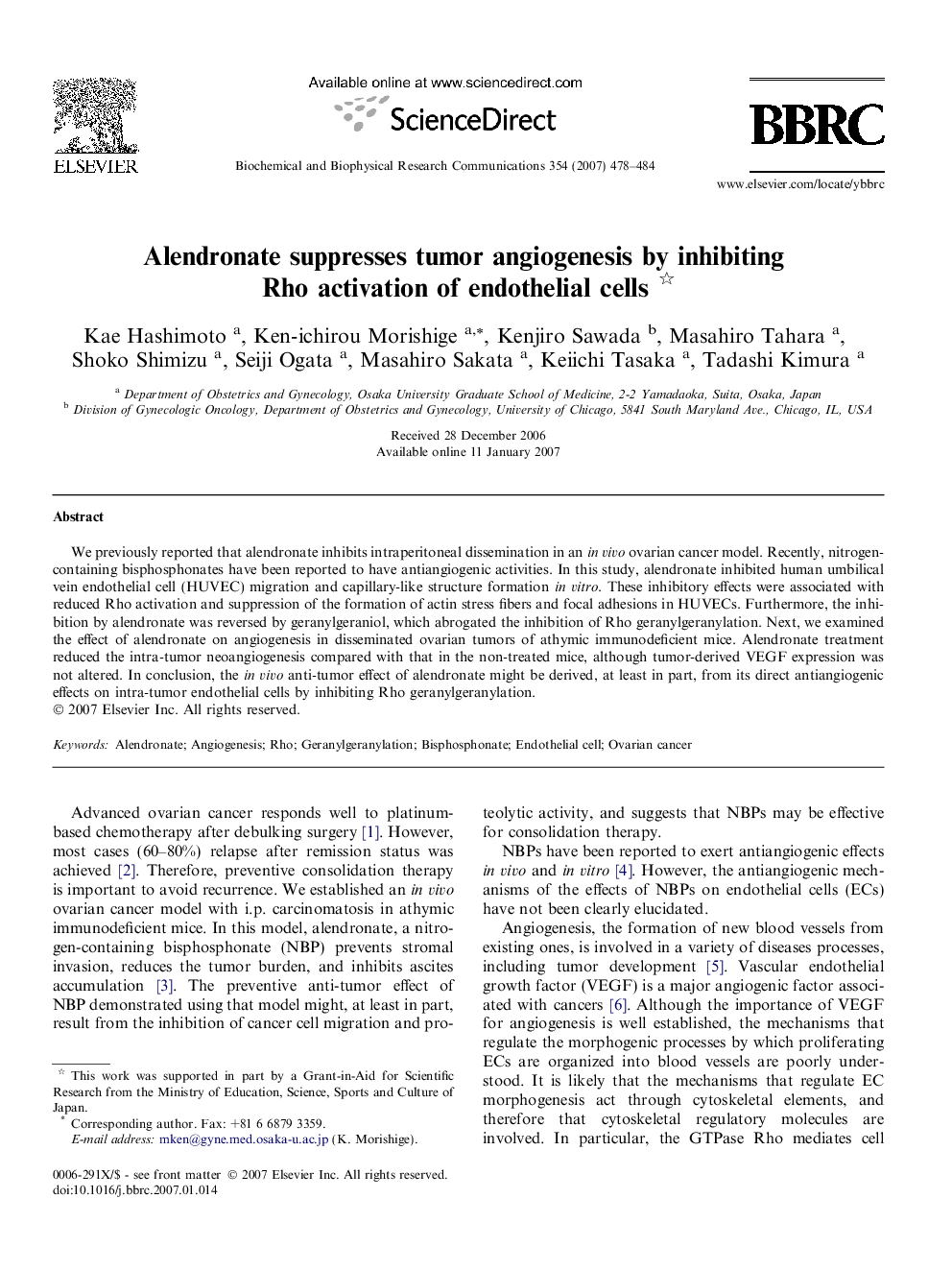| Article ID | Journal | Published Year | Pages | File Type |
|---|---|---|---|---|
| 10767443 | Biochemical and Biophysical Research Communications | 2007 | 7 Pages |
Abstract
We previously reported that alendronate inhibits intraperitoneal dissemination in an in vivo ovarian cancer model. Recently, nitrogen-containing bisphosphonates have been reported to have antiangiogenic activities. In this study, alendronate inhibited human umbilical vein endothelial cell (HUVEC) migration and capillary-like structure formation in vitro. These inhibitory effects were associated with reduced Rho activation and suppression of the formation of actin stress fibers and focal adhesions in HUVECs. Furthermore, the inhibition by alendronate was reversed by geranylgeraniol, which abrogated the inhibition of Rho geranylgeranylation. Next, we examined the effect of alendronate on angiogenesis in disseminated ovarian tumors of athymic immunodeficient mice. Alendronate treatment reduced the intra-tumor neoangiogenesis compared with that in the non-treated mice, although tumor-derived VEGF expression was not altered. In conclusion, the in vivo anti-tumor effect of alendronate might be derived, at least in part, from its direct antiangiogenic effects on intra-tumor endothelial cells by inhibiting Rho geranylgeranylation.
Related Topics
Life Sciences
Biochemistry, Genetics and Molecular Biology
Biochemistry
Authors
Kae Hashimoto, Ken-ichirou Morishige, Kenjiro Sawada, Masahiro Tahara, Shoko Shimizu, Seiji Ogata, Masahiro Sakata, Keiichi Tasaka, Tadashi Kimura,
